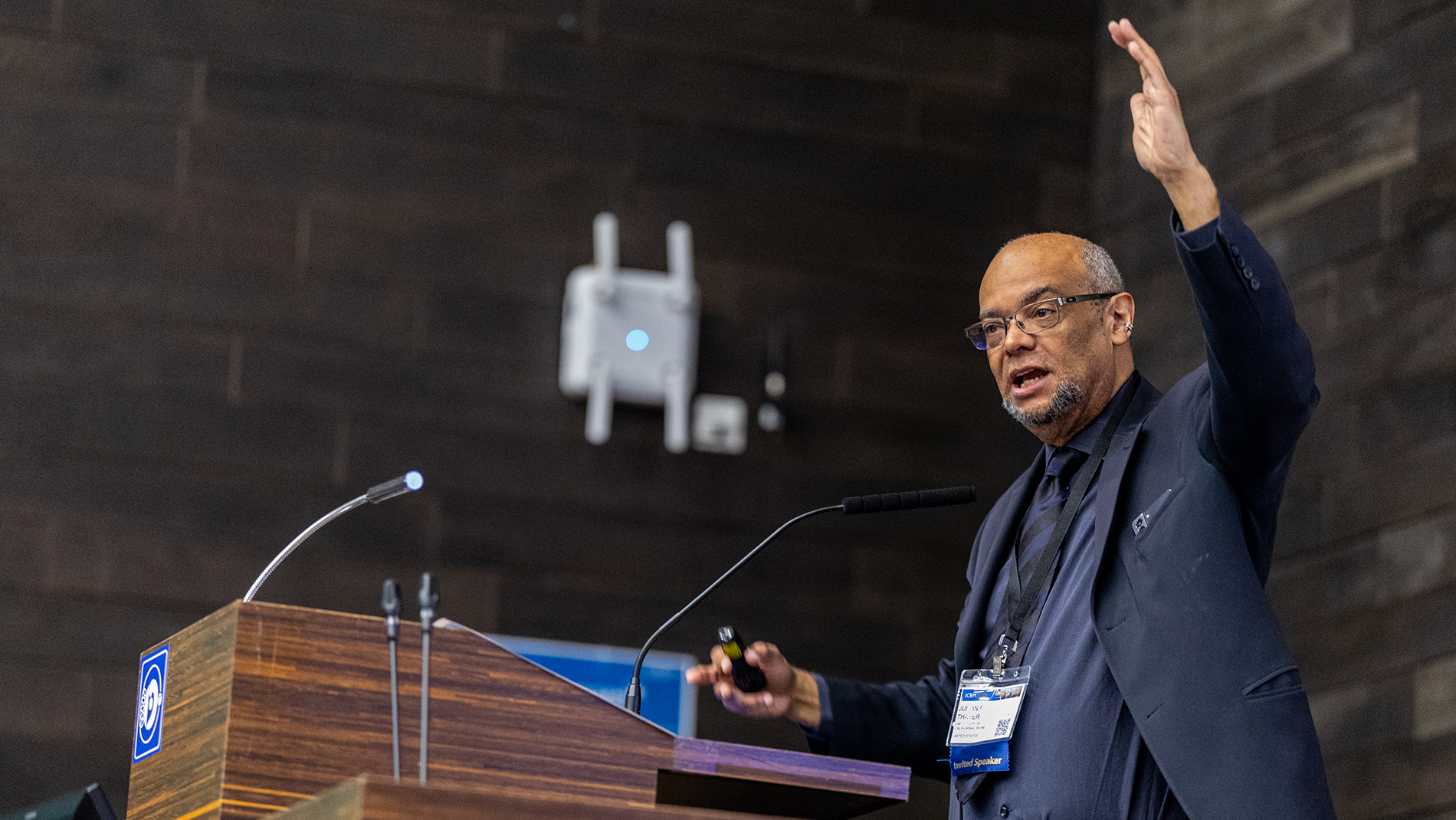
Thayer given ISBM Lifetime Achievement Award
Julian F. Thayer, Distinguished Professor of psychology, has received the Lifetime Achievement Award from the International Society of Behavioral Medicine (ISBM), recognizing nearly four decades of research into how stress and emotions impact the heart-brain connection.
The award was presented on Aug. 8, with Michael Hoyt, UC Irvine chair and professor of population health and disease prevention and ISBM’s president, delivering the introduction.
“When I was a grad student and postdoc, I used to read articles by this guy Julian Thayer and I remember being so excited to be in this field, overwhelmingly intimidated by his work's sophistication, and wholeheartedly inspired,” Hoyt said during the awards ceremony. “Of course I never thought I would someday get to call Julian a colleague and friend.”
Thayer, who has authored more than 500 peer-reviewed publications, is best known for developing the influential Neurovisceral Integration Model, which connects heart rate variability to flexible cognition, emotion regulation and mental health. His research has revealed that individuals with greater vagus nerve activity tend to be more forgiving, less likely to assign blame and more adept at regulating emotions in the face of injustice.
“It’s a great honor to be recognized by such an important international organization,” Thayer said. “It speaks to the high regard that the work of my collaborators and trainees are held in as none of the work could have been done without them.”
Following the award presentation, Thayer delivered a keynote address focusing on what he calls the “cardiovascular conundrum,” a unique pattern of psychophysiological response to unfair treatment observed in African Americans, who have the highest rates of hypertension-related disease of any ethnic group in the United States.
His research has shown that discrimination affects not only those who experience it directly but also their partners, family members and even those who perpetrate bias. The pattern is characterized by greater heart rate variability and greater total peripheral resistance in African Americans compared to European Americans when exposed to unfair treatment.
“Ultimately, the systemic factors that perpetuate these inequalities will require that we first acknowledge and then face the challenges they present if we are to address the health disparities in our country,” Thayer noted.
Thayer's career has spanned prestigious institutions including Penn State, the University of Missouri, the National Institutes of Health, and Ohio State University, along with fellowships in Norway, Germany, Italy and the Netherlands. He earned his Ph.D. and master's degrees in psychophysiology from New York University after discovering an early fascination with how music and emotion interact at a physiological level.
In a testament to his Renaissance spirit, Thayer also is an accomplished jazz musician who began playing double bass at age 10 and has performed extensively throughout the United States and Europe, with numerous recordings to his credit.
The ISBM Lifetime Achievement Award adds to Thayer's impressive list of honors, which includes the 2023 Distinguished Scientist Award from the American Psychosomatic Society and the 2019 Distinguished Scientist Award from the Society of Behavioral Medicine. His 2023 election to the National Academy of Medicine recognized his research on how acute and chronic stress, including systemic racism, disrupts the autonomic nervous system and contributes to premature cardiovascular disease and aging.
“Dr. Thayer is well known as a pioneering health psychologist whose groundbreaking work has reshaped our understanding of how stress and emotions impact the heart brain axis,” Hoyt said, describing Thayer as “an incredibly kind, thoughtful, and just astoundingly knowledgeable colleague, leader and friend.”
The International Society of Behavioral Medicine is a leading global organization dedicated to advancing the field of behavioral medicine through research, education, and clinical practice.
— Mimi Ko Cruz